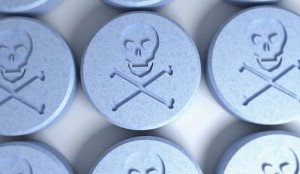 There are several types of anti-depression drugs. Widely used are SSRIs (Selective serotonin reuptake inhibitors) and SNRIs (Serotonin-norepinephrine reuptake inhibitors). Usually, anti-depression drugs lead to excessive chronic prolactin production – a condition called Hyperprolactinemia (can best be described as a functional disorder). Excessive prolactin in the bloodstream reduces the testosterone and DHT release from the testicles, resulting in bone and muscle weakness.
There are several types of anti-depression drugs. Widely used are SSRIs (Selective serotonin reuptake inhibitors) and SNRIs (Serotonin-norepinephrine reuptake inhibitors). Usually, anti-depression drugs lead to excessive chronic prolactin production – a condition called Hyperprolactinemia (can best be described as a functional disorder). Excessive prolactin in the bloodstream reduces the testosterone and DHT release from the testicles, resulting in bone and muscle weakness.
SSRIs tend to block dopamine nervous functions in the hypothalamus-pituitary axis, which are responsible for the release of oxytocin, known as the emotional and orgasm hormone. The drugs also tend to indirectly interfere with all the neurotransmitter systems and the production of various hormones, usually by overloading the liver P450 detoxification system. They also block the spinal nervous transmissions in the synapses with a flooding of serotonin through a reuptaking inhibition. The gene expressions of D2 dopamine receptors, acetylcholine receptors, and 5-HT (Serotonin) 2C receptors are also being alternated.
SSRIs will destroy the pituitary and liver functioning, burdening your endocrine system. SSRIs not only inhibit the reuptaking of serotonin, but actually lower the natural levels of serotonin due to the destructive effects on the liver P450. SSRIs drugs usually reduce the serotonin nervous action in the neuromuscular ending receptors all over the body.
The blocking of dopamine and acetylcholine transduction, accompanied with the high level prolactin (being dumpled into the bloodstream), disables the nervous function in the penis and seminal production, and if taken systematically, can completely desensitize the penile nerves, prostate and seminal vesicles. Furthermore, SSRIs drugs tend to block hypothalamic/adrenal – dopamine – norepinephrine conversion and oxytocin release (essential to activation of orgasmic contractions).
SSRIs anti-depression drugs cause neuroplasticity, a term used in this particular context to describe deformation of synapses and outgrowth of serotonin neurons. This neuroplasticity is known to cause addiction and severe withdrawal symptoms. SSRIs will inhibit the reputaking of serotonin in the nervous synapses by blocking the serotonin transporter, thus allowing the serotonin neurotransmitter to continue influencing the postsynaptic neurons. However, SSRIs are not increasing neurotransmitter synthesis, on the contrary – they are cutting down the natural serotonin release from the nervous terminals, it is just that SSRIs stimulate more serotonin neurons. SSRIs antidepressants also tend to alter the relationship between dopamine and serotonin signaling in the striatum, which will receive moderate serotonergic and rich dopaminergic innervation. This can be extremely harmful and may lead to irreversible damage. Due to the inhibition of serotonin transporters, the dense striatal Dopamine Transporters may uptake serotonin into the dopamine terminals, which will destroy the dopamine nervous function responsible for the release of oxytocin, LH and FSH. Also, a weak dopaminergic function will result in heightened pituitary release of prolactin and disable sexual function completely.
To negate the ill effects SSRIs, one must power his dopamine, cholinergic, serotonin and GABA nervous function. Dopamine is essential to the hypothalamus-pituiatry-testicular function.
